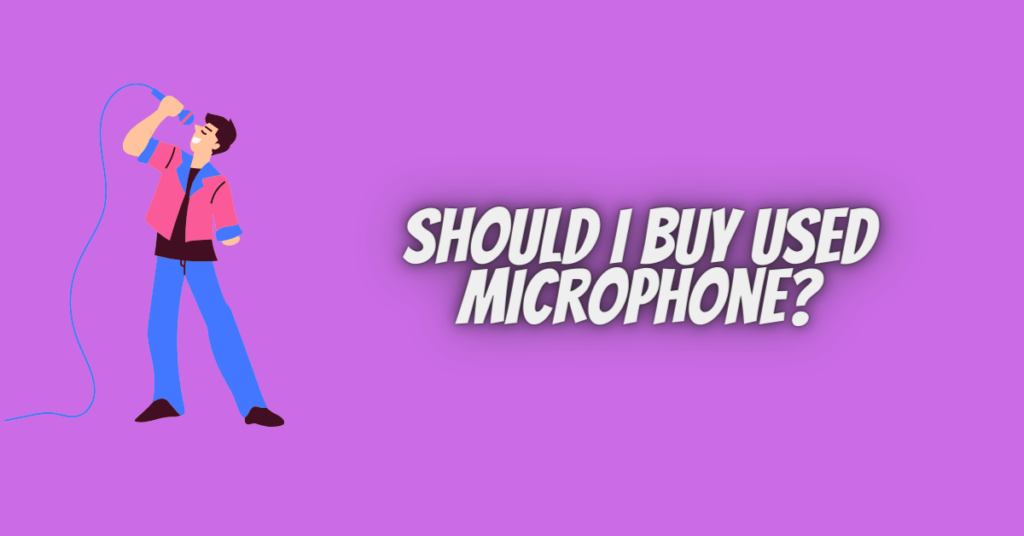When it comes to building a home studio or enhancing your audio setup, the question of whether to buy a new or used microphone often arises. While buying new equipment provides the assurance of quality and warranty, purchasing a used microphone can be a cost-effective solution. In this article, we will explore the advantages and disadvantages of buying a used microphone to help you make an informed decision.
Pros of Buying a Used Microphone:
1. Cost Savings: One of the primary reasons people opt for used microphones is the significant cost savings. High-quality microphones can be quite expensive when purchased new, and buying used allows you to access professional-grade equipment at a fraction of the original price.
2. Vintage and Unique Models: Some vintage or discontinued microphone models are highly sought after for their unique sound characteristics. Buying used gives you the opportunity to explore these vintage gems that might not be available as new products.
3. Environmental Impact: Choosing used equipment promotes sustainability by reducing electronic waste. By giving a pre-owned microphone a new life, you contribute to environmental conservation.
4. Negotiation and Bargaining: When purchasing from an individual seller, you may have the opportunity to negotiate the price, potentially getting an even better deal on the microphone.
Cons of Buying a Used Microphone:
1. No Warranty: Unlike new microphones, used ones typically do not come with a manufacturer’s warranty. This lack of warranty means that if the microphone has issues, you might need to cover the repair costs yourself.
2. Uncertain History: Used microphones may have undergone various conditions and usage patterns, potentially affecting their performance. It’s challenging to ascertain the microphone’s history, making it a gamble regarding its longevity and quality.
3. Limited Availability: Particularly with vintage or specific microphone models, finding the exact microphone you desire in the used market can be challenging. Limited availability might limit your choices and force you to compromise on your preferences.
4. Potential Wear and Tear: Used microphones might show signs of wear and tear, which could impact their performance or aesthetics. Scratches, dents, or other damages might be present, affecting the overall value and appeal of the microphone.
Conclusion
Deciding whether to buy a used microphone ultimately depends on your budget, preferences, and risk tolerance. If you are on a tight budget and can find a reputable seller offering a well-maintained microphone at a significantly lower price, buying used can be a viable option. However, it’s essential to research thoroughly, inspect the microphone carefully if possible, and, if applicable, test it before making a purchase.
On the other hand, if you prioritize the assurance of a warranty, pristine condition, and the latest technology, investing in a new microphone might be the more suitable choice. Consider your needs, do your due diligence, and weigh the pros and cons carefully before making a decision. Whether you choose new or used, your microphone selection should align with your specific recording requirements and preferences, ensuring a satisfying and productive audio experience.


